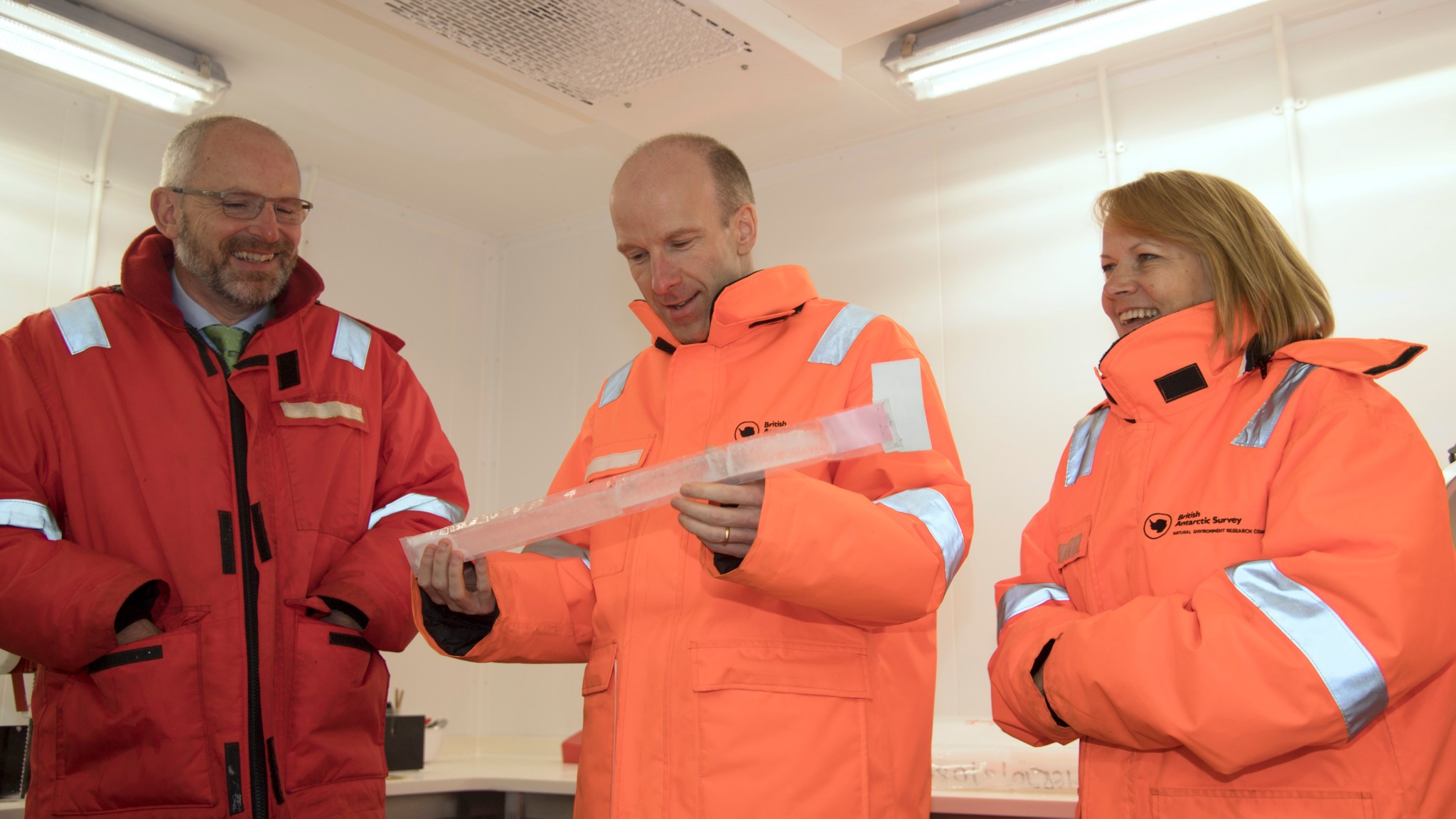Antarctica is a unique global laboratory for science and in particular the prediction of the global impacts of climate change. The Antarctic Treaty uniquely protects the continent for “peace and science”. 15 nations have research stations located within the British Antarctic Territory (BAT), with scientists operating there from across the globe on a huge variety of scientific disciplines. The Antarctic Treaty ensures scientists share their findings and engenders cooperation amongst nations, which is essential in order to operate in the Antarctic’s hostile environment.
British Antarctic Survey
The UK has been a world leader in polar exploration and research for over a century. The UK’s efforts in Antarctic science are led by the British Antarctic Survey (BAS), which has been operating in the BAT on behalf of the UK by for over 60 years. Based in Cambridge, BAS is a component of the Natural Environment Research Council (NERC), which is part of UK Research and Innovation.
BAS has its roots in ‘Operation Tabarin’ – a secret operation to secure a presence in Antarctica during the Second World War. After the war, Tabarin’s three bases and its scientific work were transferred to a new organisation – the Falklands Islands Dependencies Survey, which in turn was renamed the British Antarctic Survey in 1962.
UK Science
As well as operating the UK’s infrastructure in the BAT, BAS is a world leading science organisation taking a multi-disciplinary, collaborative approach to its research. The scientific research programme, Polar Science for Planet Earth, sets their strategic direction, demonstrating a commitment to partnership and promoting BAS’s Vision and Mission to deliver excellence, impact and leadership in science.
BAS ambition is to address scientific questions that affect the entire planet and the lives of the individuals on it. Its multidisciplinary science teams develop and deliver a portfolio of research projects designed to address major scientific and societal issues that will lead to responsible environmental management and produce lasting benefits for the UK economy.
- Find out more at www.bas.ac.uk.
But there is far more to UK Antarctic science than just BAS. Science teams from world-leading universities across the UK study and work in Antarctica, either using BAS ships/stations or collaborating with other nations. The UK is second only to the USA in terms of the number of Antarctic science publications and contributes to a wider range of international science organisations, such as the Scientific Committee on Antarctic Research (SCAR) and the Intergovernmental Panel on Climate Change (IPCC).

